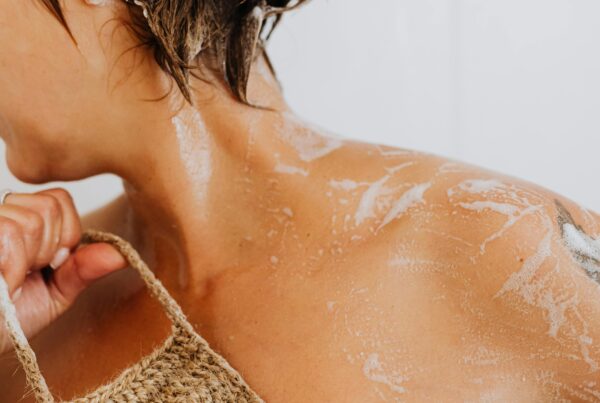As a parent, our mission is to ensure that our kids will have good oral health. Poor oral health can cause discomfort, pain, and even embarrassment to your child. Having poor oral health can impact their self-esteem and affect their capability to perform their daily activities. Longevity Live Paid Content.
That’s why we must ensure they get the proper knowledge and support to acquire good oral health. Here are five tips on how you can help protect your child’s oral health from the moment they have their first teeth until they grow old.
1. Only Use an Orthodontic Pacifier
The first step to protecting your child’s oral health is introducing them to orthodontic pacifiers. Pacifiers, or binkies, are a baby’s preferred method of self-soothing. It helps them feel at ease and gives them a sense of calm and contentment.
Babies love to use pacifiers for this reason. Many years ago, pacifiers were associated with teeth deformation, making parents fear giving them to their babies. But today’s new pacifier design, called the orthodontic pacifier, is different.
If you choose orthodontic pacifiers, you won’t need to worry that your baby will develop dental issues as they age. Orthodontic binkies are better compared to conventional binkies on the market since they are made to support a baby’s jaw and palate shape.
But despite having a different shape, ensuring that your baby is comfortable when using it is still vital. To achieve this, you might want to consider orthodontic pacifiers by Dr. Talbot’s designed for optimal comfort. Your baby will surely love it, and you can rest assured that it won’t damage their oral health.
2. Teach Them To Brush Regularly
Telling your child to brush their teeth regularly won’t be enough. Brushing their teeth by yourself is a lot worse. You must teach them how to brush their teeth properly and how often they should do it.
Educate them on the importance of brushing their teeth and let them know the consequences if they don’t. As soon as your baby’s first tooth appears, you can introduce them to brushing.
Remember that brushing is the best way to eliminate bacteria in the mouth, which can result in plaque buildup and gum disease. Plaque is the number one cause of tooth decay. As a rule of thumb, we must brush our teeth for up to 5 minutes at least twice daily.
Teaching your child early about brushing their teeth will become a part of their routine. That said, you’ll be confident that your child’s oral health will be protected until they grow old.
3. Avoid Giving Them Unhealthy Snacks
What our kids eat is one of the main causes why they get bad oral health. That’s why, as parents, we must avoid giving them unhealthy snacks that could ruin their teeth and gums. The most common culprits that cause your child’s oral health to decline are too much sugar, carbs, and acid from fruits.
So, you must be very careful the next time you give your little ones a snack. The food you should avoid giving them are:
- Sugary drinks
- Candy and gums
- Citrus fruit and juices
- Bread
- Chips
- Pasta
Instead, opt for healthier options with lower amounts of sugar and carbs that are not just good for their overall health but also for their oral health, such as:
- Cottage Cheese
- Plain yogurt
- Nuts (Almond and cashews)
- Fresh Vegetables
- Fibrous fruits
Cottage cheese and yogurt are rich in calcium. Calcium, as we all know, helps strengthen bones and teeth, which would benefit your kid’s oral health. Meanwhile, nuts like almonds and cashews are delicious snacks that kids love. It also contains a lower amount of carbohydrates, making it a healthier option.

Photo by Taryn Elliott from Pexels
4. Let Them Wear Mouth Guards When Doing Sports
When your child is old enough to participate in sports, don’t forget to let them wear mouthguards, especially if they’re into rough sports. There are many protective gear your child needs when engaging in sports.
The gear your child needs depends on the sport that they’re participating in. For example, you might want to ensure they use shin guards and a groin cup if they’re into soccer. Aside from providing your child with the necessary protective gear according to their sports, you must also remember to include a mouthguard on the list. This way, you know that your child’s teeth are protected.
Mouthguards are designed to cushion an impact on your child’s mouth and protect their teeth. If your child isn’t wearing a mouth guard and a ball or anything hard hits him on the mouth, they can suffer a loose tooth, bleeding gums, or a cut inside their mouth.
5. Bring Them To Their Dentist Regularly
Protecting your child’s oral health involves bringing them regularly to a pediatric dentist. Using oral health-friendly devices, brushing their teeth, giving them a healthy snack, etc., can help protect their oral health. But still, you mustn’t forget to visit their dentist.
Doing so will help you determine the oral problems that your child is suffering from and find treatment for it as soon as possible. Dentists are also a great source of vital information that will help you protect your child’s oral health properly.
Bottomline
It’s always best to start teaching our kids the proper oral health routine while they’re young. If you do the five tips mentioned above, you can be confident that your child will grow up knowing the importance of proper oral health care.
Who is the author?
Jack Rayles is a freelance writer and mom of two currently residing in California. Her experience in motherhood allows her to help other new, struggling moms through her writing. Not only that, she’s also proficient in topics about lifestyle, especially balancing self-care with family life. During her free time, she makes sure to bond and connect with her kids.

Jack Rayles





![women [longevity live]](https://longevitylive.com/wp-content/uploads/2020/01/photo-of-women-walking-down-the-street-1116984-100x100.jpg)









